End of the road for Port Adelaide landmark
After decades of sales from scores of stallholders, the waterfront home of the Port Adelaide Fisherman’s Wharf Market has shut its doors for the last time. Jason Katsaras went along for a final browse and a chat.
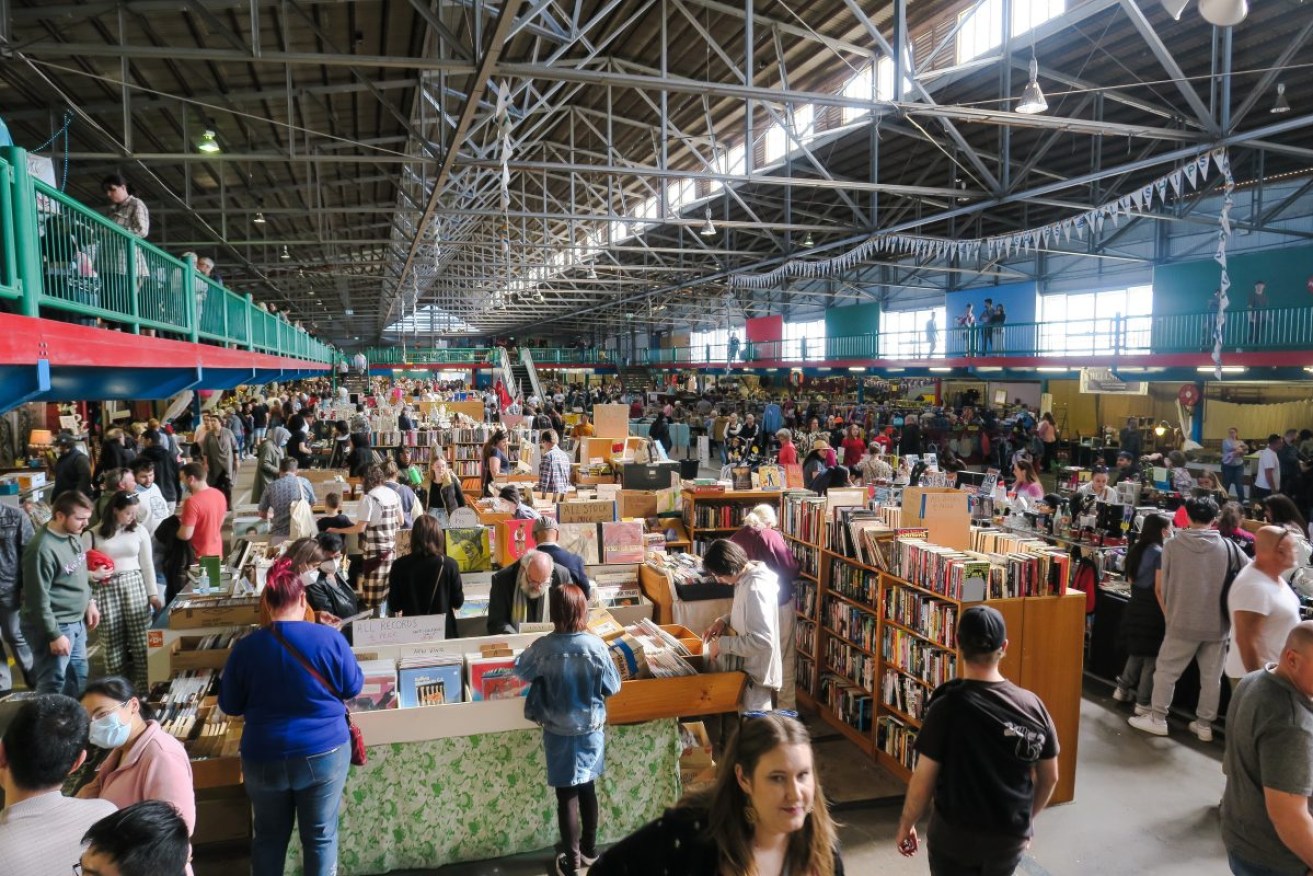
The final day of trading at The Port Adelaide Fisherman's Wharf Market. Photo: Jason Katsaras/InDaily
Punters flocked to the market last Sunday for a wander through the sprawling emporium before it closed, awaiting demolition.
The vast space bustled with shoppers looking for a bargain amongst over 100 stalls selling bric-a-brac and trinkets, antiques, toys, books and innumerable other items.
Some traders remarked it was one of the busiest days they had seen in years. But it won’t be repeated.
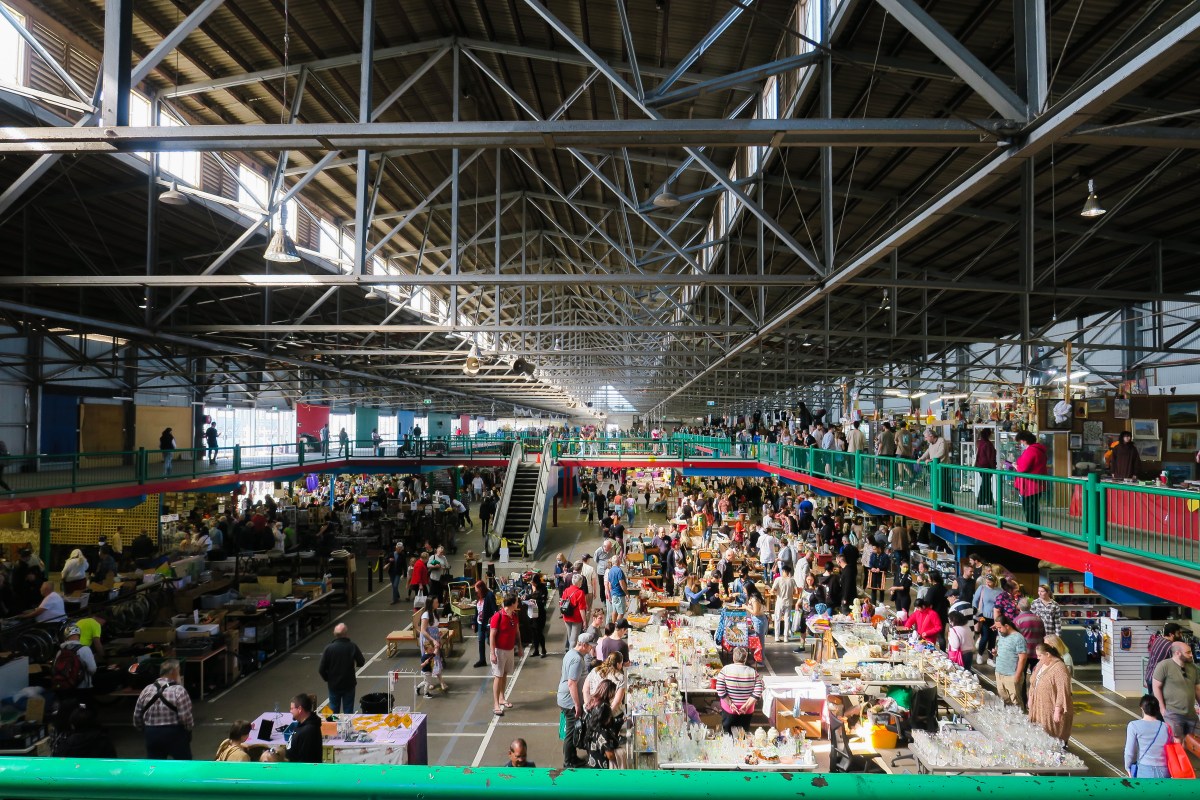
The final day of trading at The Port Adelaide Fisherman’s Wharf Market. Photo: Jason Katsaras/InDaily
The Port Adelaide Enfield Council said a demolition application submitted by property owner Hans Ehmann was approved earlier this year.
“A land division for two lots has also been submitted and approved,” a spokesman said.
“No development application has been submitted for any replacement development yet.”
Four years ago a retirement living building was slated for the prime site, on the wharf next to the lighthouse at the end of Commercial Rd, but that never eventuated.
It’s understood once the existing shed is demolished, expected later this year, the area will be used as a car park before any future development.
Port Adelaide Enfield Mayor Claire Boan said that as the land is privately owned, council did not have a considerable say in decisions relating to the lands use.
“The Fisherman’s Wharf markets are a much-loved community activity. The building is not owned by the council, and the owner has decided that the time has come for something new in this location,” Boan said.
“Council staff have been engaging with stallholders at the markets to understand their needs and explore opportunities to transition into whatever is next for them, whether this is to move to an online store, to look for a physical shopfront, or to identify other market options”
InDaily spoke to some long-term stallholders who, after countless sales, chin wags, yarns, pack-ups and pack-downs, are moving on.
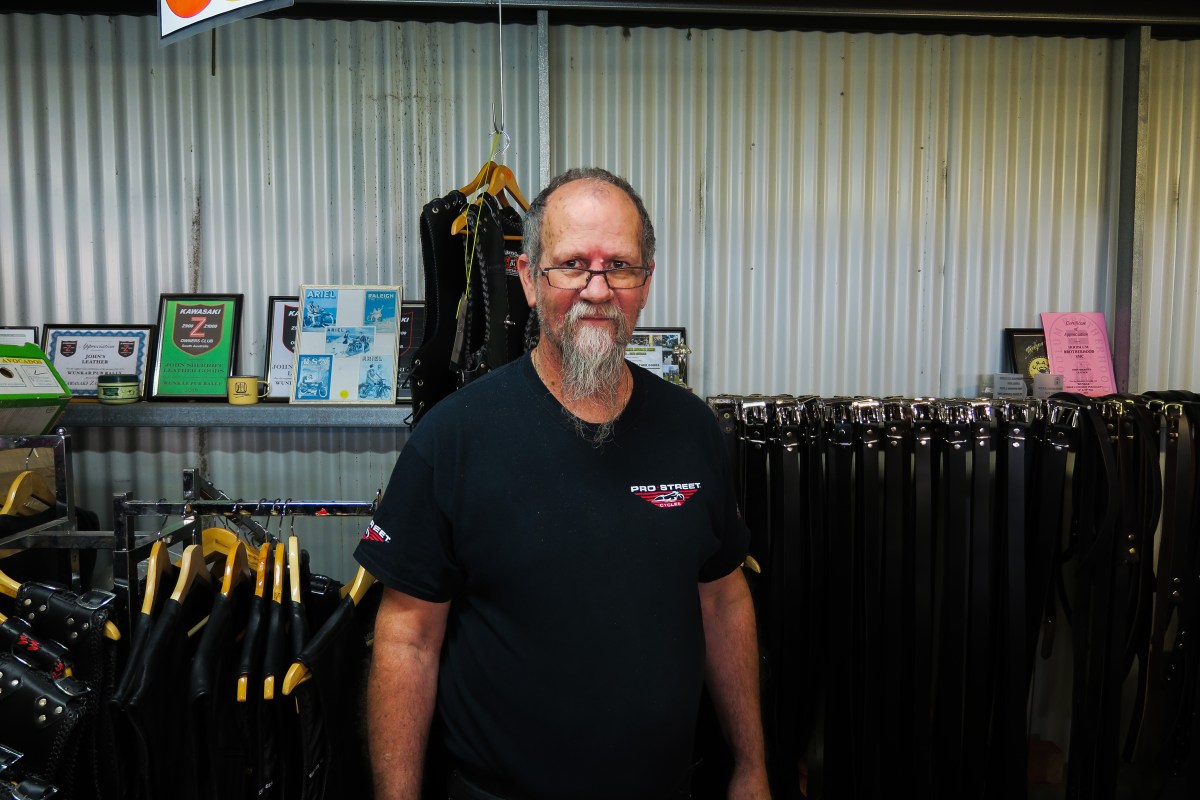
John Sheriff who has operated a stall at the Port Adelaide Fisherman’s Wharf Market for 20 years.
John Sheriff operated a stall selling leather goods and motorbike accessories for 20 years and was disappointed he will be forced to shut up shop.
Like many stallholders, Sheriff already travels the state selling his wares at local markets, and plans to continue doing so without his staple Sunday trade.
“It’s a shame but hopefully someone opens up something similar,” Sheriff said.
“We’ll do a couple of local markets and a few bike shows, see where we end up.”
87-year-old Joan sold wares in the market for 24 years, firstly with her husband in hardware and then alongside his stall with her own.
“Of course people are sad to see changes but you’re living in an environment where things change,” Joan said.
“A lot of our wholesalers are now missing, they’ve all gone and closed, you’ve got many factors but I think what they put here will be good for Port Adelaide.”
Another husband and wife duo Ron and Heather said they have been operating their second hand book stall at the port in some form or another for 30 years.
The duo, who ritually load up their car and travel to the port from Tea Tree Gully each Sunday will now put more effort into selling their wares online.
“We’re on the internet as well, so we’ll probably just focus on that, our regulars are all sad to see us go,” Ron said.
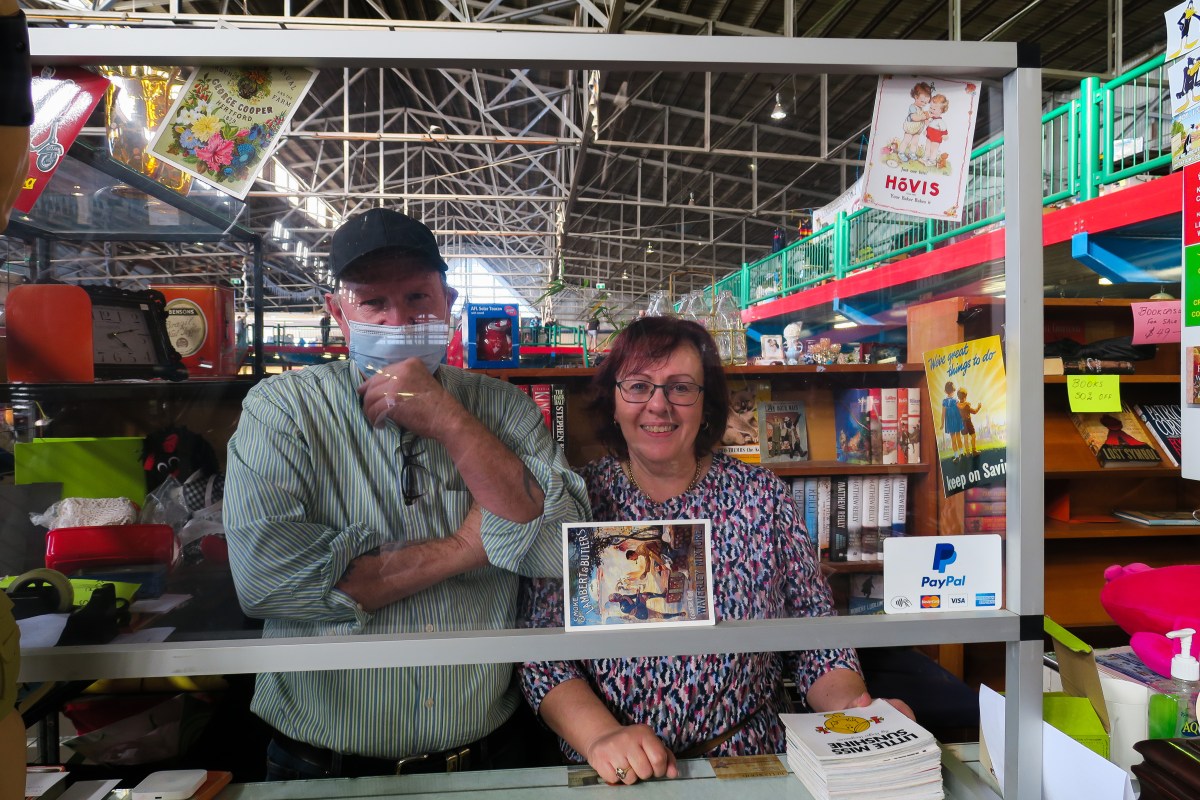
“We’ve met some marvellous people here, a lot of very interesting people have either passed away now or moved on.
“People from interstate always say it’s the best market in Australia, there’s a lot of markets around but it’s all new stuff, they come here and it’s a variety, not like markets in Melbourne where it’s 99% new t-shirts and that sort of thing.”
While food and coffee trucks line the entrance to the market, just inside the large shed sits the market’s cafe, offering milkshakes and snacks to hungry shoppers.
Cafe owner Sue Gallpen explained that her business started on the outside of the markets with a barbeque 15 years ago, before taking over prime real estate on the market ground floor.
“It will be sad to see the market go, the market has two worlds – there’s the inside world [stallholders] and the outside world [food trucks].”
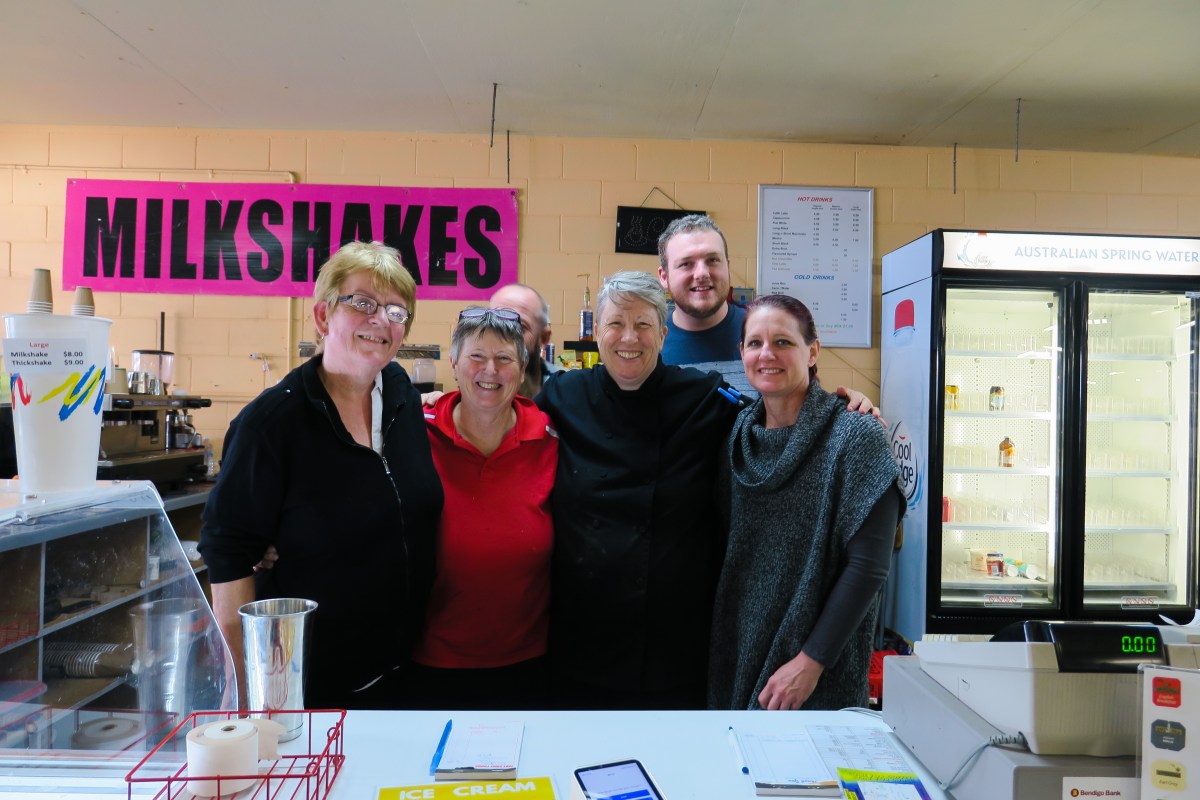
Sue Gallpen (second from left) and her coworkers at the Port Adelaide Fisherman’s Wharf Market Cafe.
Sue said for years people routinely visited vendors outside before departing on the Port’s famous dolphin cruises, sometimes without even setting foot in the market itself.
“When we moved inside we had no idea there would be such a different feel.”
After moving inside, Sue who with her team also runs a venue in the city, said she began offering offering hot food for punters, with the cafe routinely full to the brim.
“I used to cook for three days before the market to get the food ready and we had seven staff working here run off their feet all day,” she said.
A serious knee injury in 2016 meant Sue could no longer keep up with the prep work necessary to offer customers hot meals every Sunday and she said the response from customers was significant.
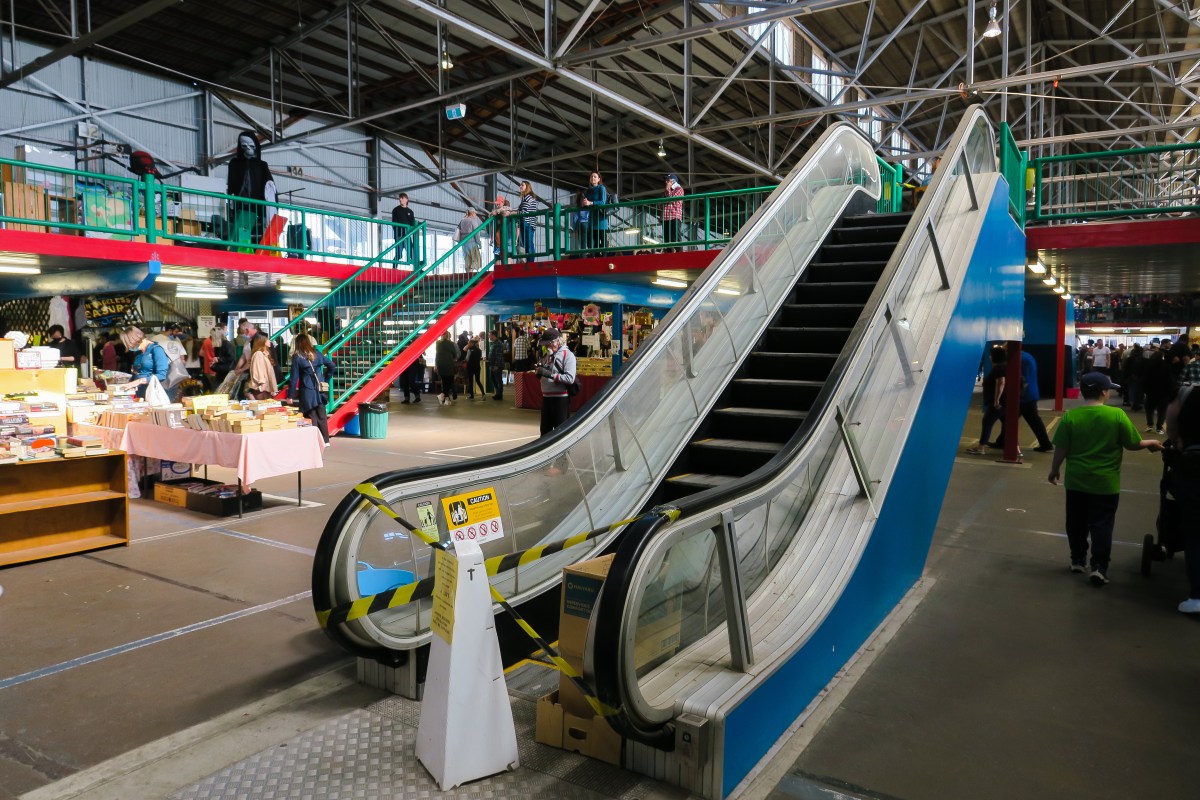
A disused escalator at ‘Shed 1’ in Port Adelaide, which is slated to be demolished this year.
“When I split my knee open and we had to stop, people were really let down, it had become a social meeting place, you’d have three generations meeting here, we had started to form this lovely community.”
” [After the injury] we scaled the whole thing down, but for lots of older people this was their social fabric, it was really important, the trading post of the western outcrop.”
“We found that heart wrenching when we did that, that was really, really hard.”
Despite her connection to the market Sue was not concerned by plans to develop the waterfront site, given its private ownership.
“Knocking down the market is a pity in some ways for the community, but it’s privately owned, they have every right to develop it, they’ve already given 25 years to the Port Adelaide community.”
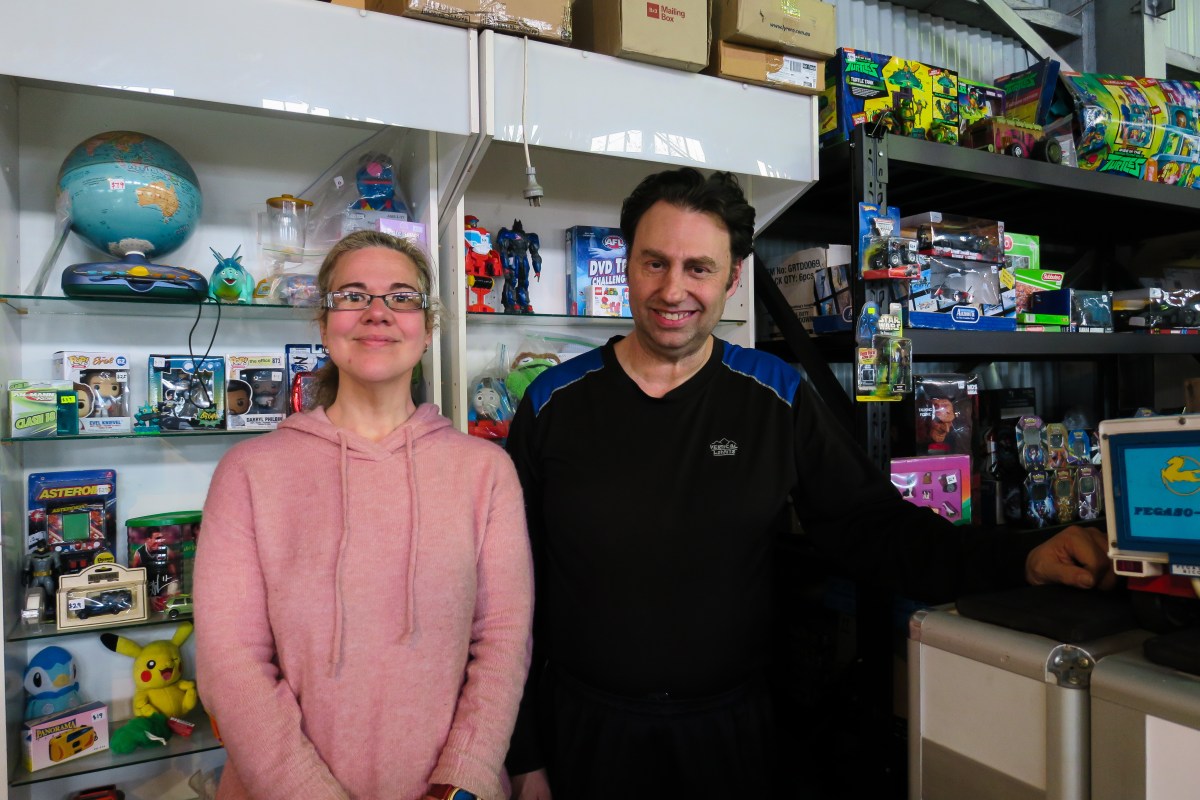
Steve Terry and Melinda Rutherford started a stall at the market at the turn of the millennium, selling trading cards, toys and a range of sought after collectibles.
The couple are looking forward to the break which the end of the marketwill afford them but are sad to see the institution go.
“It’s been expected, there was talking about knocking this place down more than 10 years ago, at one stage we were going to go to brickworks, which is no longer there,” Terry said.
“It’s a community here, a lot of times we [stallholders] go out together, some of us used to organise get togethers, especially for Christmas we’d all get together and have a Christmas function.”
Both Steve and Melinda work outside of the market but have always maintained their Port business each Sunday.
“Some people might not make a lot of money, but they still come here to get out and meet people,” Terry said.
“We’ve always broken even here and made enough to cover rent and a little bit on top of that.”
Melinda said the market’s variety means people have always been able to find gifts suited to anyone.
“We all bring something different and it’s a nice family environment,” Rutherford said.
“A big change for us was trying to sell on marketplace while the shop was closed during Covid-19 restrictions,” she said.
“We weren’t getting a lot of sales, but when we came back here it was much better.”
“Anything you can hold in your hands you’ll be interested, it’s that fear of missing out,” Steve said.
“People come here they find something and they walk out with a big smile on their face because they score something they’ve been looking for since they were a kid.”
One stall holder who did not wish to be named said the attraction of the markets was rooted in the fixed location, meaning stallholders didn’t need to pack up and pack down each week as they would for outdoor markets.
“I’m going to have to enormously downsize what I’m taking to markets,” they said.
“Everybody’s saying they thought it was going to be here forever.”




